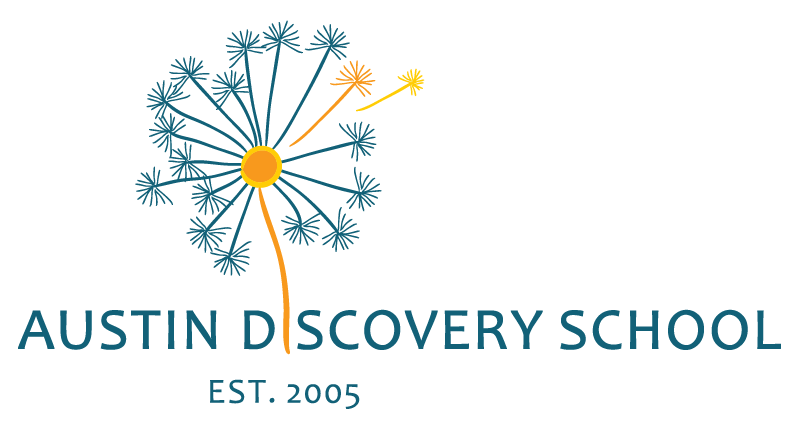Student Support Services
ADS offers a continuum of student support services for struggling, at-risk and students with disabilities. Our Student Services Director coordinates efforts to provide needed supports to help all children gain access to the curriculum in the least restrictive environment.
Response to Intervention (RtI):
RtI is the process ADS uses to identify, monitor and provide supports to students performing below-grade level. RtI provides a strategic process for early identification of learning/behavior concerns of students as well as the necessary tools for selecting appropriate interventions toward a positive solution for the student and teacher.
The RtI committee consists of the Student Services Director, Assistant Principal, Behavior Program Director, Interventionists, and classroom teachers. This committee monitors all students performing below grade-level on local and state assessments. They also evaluate the success of research-based intervention strategies and curriculum for effectiveness. Students in the intervention process receive Tier I, II, or III level intervention supports and are regularly monitored by the RtI committee.
504 Services:
SECTION 504 OF THE REHABILITATION ACT OF 1973 ensures that individuals with disabilities are given protection from discrimination. Often at school, this means that a child in need of accommodations based on a disability that substantially limits a ‘major life activity’ is allowed reasonable accommodations as determined by a 504 Committee. Major life activities include, but are not limited to, caring for oneself, performing manual tasks, seeing, hearing, eating, sleeping, walking, standing, lifting, bending, speaking, breathing, learning, reading, concentrating, thinking, communicating, and working. A major life activity also includes the operation of a major bodily function, including but not limited to, functions of the immune system, normal cell growth, digestive, bowel, bladder, neurological, brain, respiratory, circulatory, endocrine, and reproductive function. This list is not exhaustive. Other functions can be major life activities for purposes of Section 504. If your child needs accommodations under Section 504, or if you have questions, contact our 504 Coordinator, Ruthie Pankl at rpankl@austindiscoveryschool.org and by phone at (724) 361-3525.
504 Manual for Austin Discovery School:
The policies and procedures Austin Discovery School follows for their 504 Program are outlined in this manual. Included in the manual are common forms that you will come across if your child is referred for a 504 Evaluation.
Special Education:
ADS provides a continuum of services for students with identified disabilities who qualify for Special Education services.
Child Find:
It is the policy of Austin Discovery School open-enrollment charter school to ensure that:
Students with disabilities enrolled in the charter school or who contact the charter school regarding enrollment, regardless of the severity of their disability, and who are in need of special education and related services, are identified, located, and evaluated; and
Practical method is developed and implemented to determine which students are currently receiving needed special education and related services.
For more information regarding Child Find:
Notice of Procedural Safeguards: The Individuals with Disabilities Education Act (IDEA), as amended in 2004 http://idea.ed.gov/ , requires schools to provide parents of a child with a disability with a notice containing a full explanation of the procedural safeguards available under the IDEA and its implementing regulations.
Guide to the Admission, Review and Dismissal (ARD) Process: This resource guide is designed to give you, as the parent of a child who may be eligible for special education services, a better understanding of the special education process and of your procedural rights and responsibilities so that you will be able to fully participate in the decision-making process regarding your child’s education.
Special Education Rules and Regulations: Special education services shall be provided to eligible students in accordance with all applicable federal law and regulations, state statutes, rules of the State Board of Education (SBOE) and commissioner of education, and the State Plan Under Part B of the Individuals with Disabilities Education Act (IDEA). For further details, please consult the Special Education Rules and Regulations document provided by TEA.
To access additional general Special Education resources provided by TEA, please click on the following link:
Transition and Employment Guide
The Transition and Employment Guide is required by TEC §29.0112 and was developed by TEA with a team of stakeholders from across the state.
The Texas Transition & Employment Guide includes:
Sections on Self Advocacy, Transition Services, Employment and Supported Employment, Social Security Programs, Community and Long Term Services and Supports, Postsecondary Educational Programs and Services, Information Sharing, and Guardianship and Alternatives
Phone numbers, emails, and websites to help you find what you need
Timeline of steps that students and families can take as they make the transition from student to adult
Spanish and eReader versions of the Guide are available on the Transition in Texas website:
https://www.transitionintexas.org
SB 139 Notice to Families
Compensatory Services
Compensatory services are used to help students make up for progress or skills they lost when their special education services were not provided. This includes situations where a child does not get special education services because he or she was denied a timely initial evaluation, but later found eligible. If an initial evaluation was denied when it should not have been, compensatory services may be needed to make up for the delay in your child getting special education services.
Dyslexia Handbook 2021
The State’s Dyslexia Handbook was recently updated. This document reviews some of the major changes to help families understand what to expect if they have a child with dyslexia, suspect their child may have dyslexia, or have a student in a grade where dyslexia screening happens for all students.
The Special Education Information Center (SPEDTex) provides resources and interactive features for increasing family awareness of disabilities and special education processes, with the goal of improving partnerships between schools and families.
Contact information:
Phone: 1-855-773-3839
Email: inquire@spedtex.org


